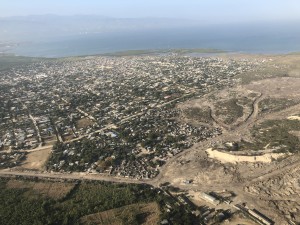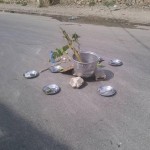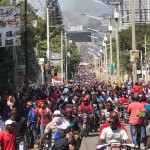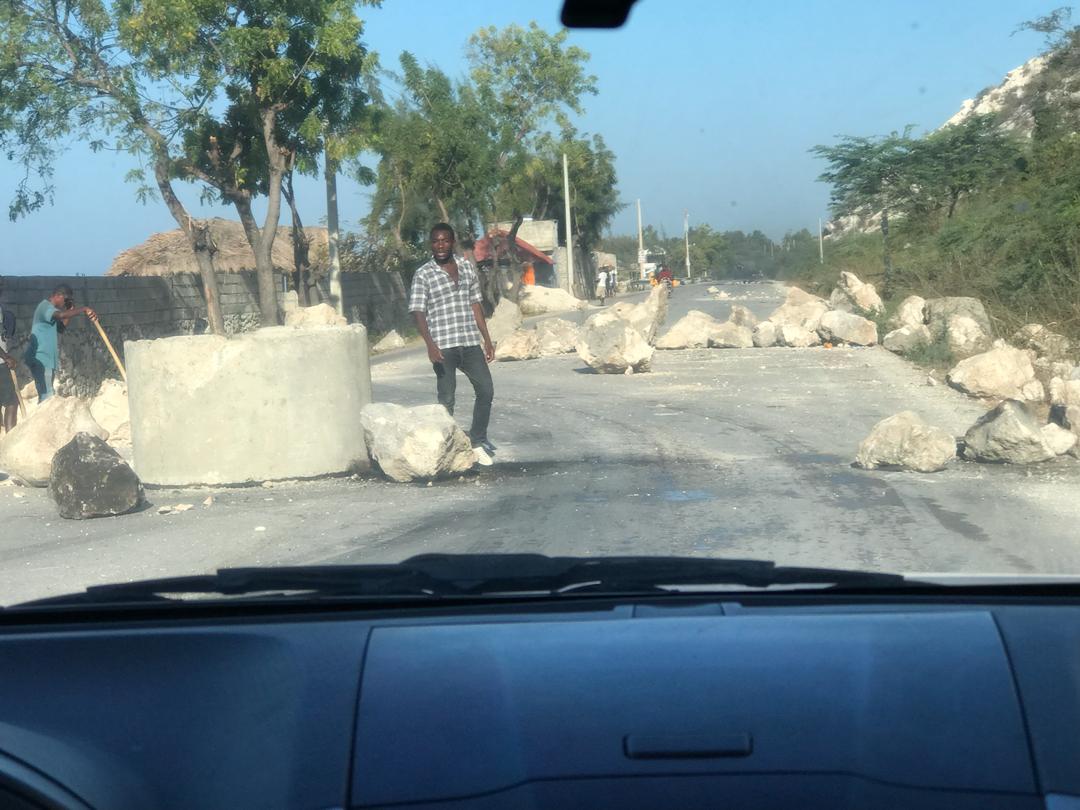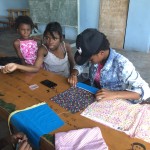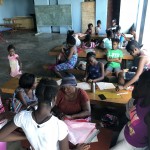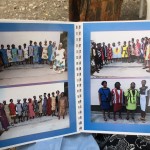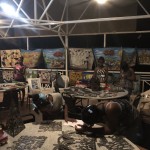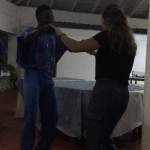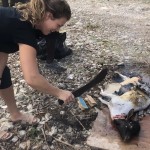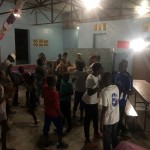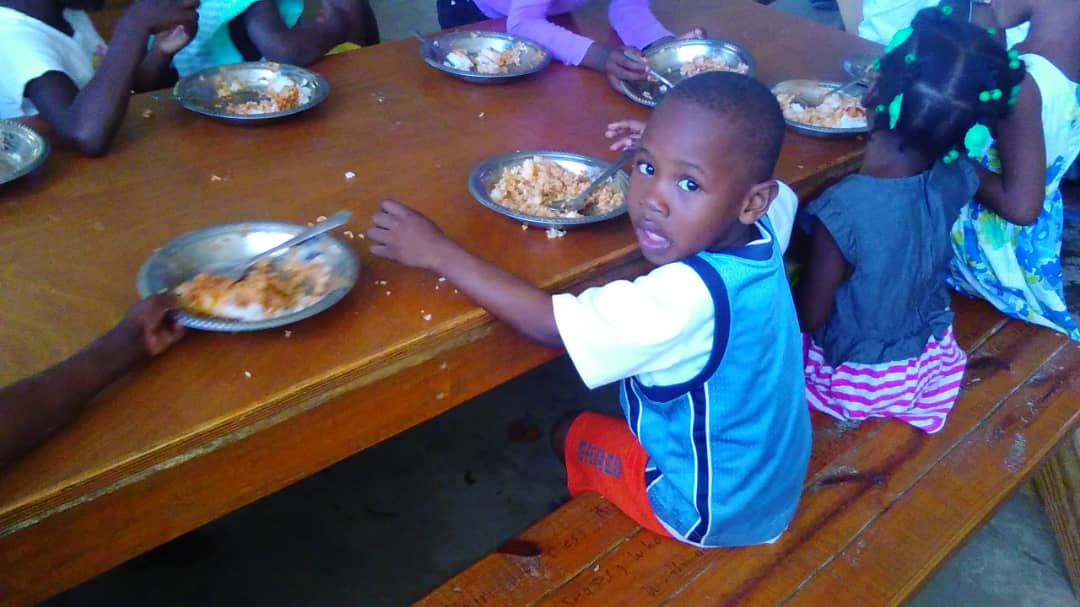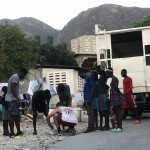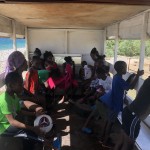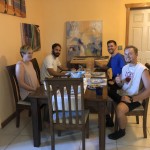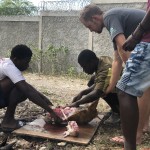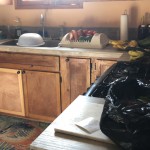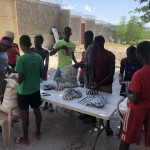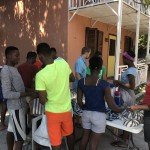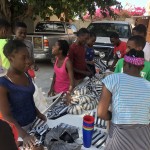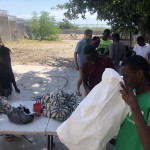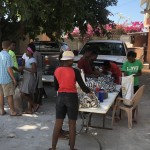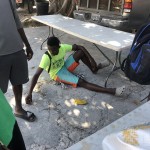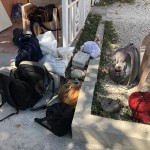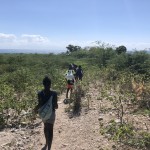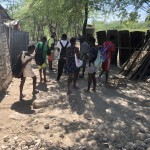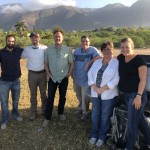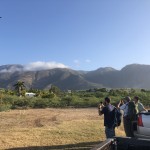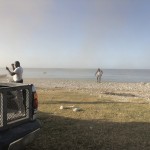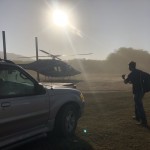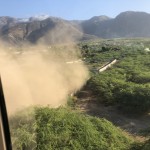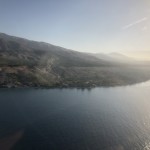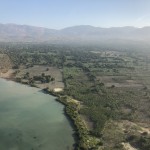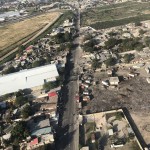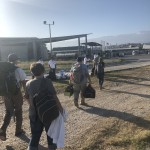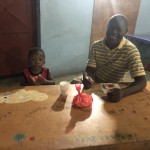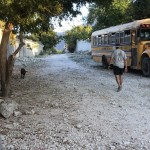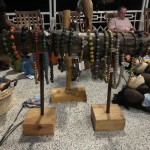Peyi a bloke. Wout yo bouche. Peyi ap kraze. Moun yo grangou. Pa gen gazolin. Pa gen dyezèl. Gourde ap monte.
The country is blocked. The roads are impassable. The country is breaking. People are hungry. Do not have gas. Do not have diesel. [The price/exchange rate of] the gourde is rising.
Or in other words, Haiti has been “Locked”, and these are a handful of the phrases I’ve been hearing and reading on a daily basis for the majority of February. This stand-still state of existence is not a new phenomenon for Haiti, and it doesn’t appear as though the corruption that causes the population to suffer from rising costs of living and scarce access to food, fuel, and transportation will be going away any time soon. Peace has returned after a long stretch of unrest, but the root issues and fundamental brokenness of the nation have yet to be addressed.
It is for the solutions to these systemic problems that we think, discuss, collaborate, labor, and pray.
Yes, people have always been hungry (by American standards) and access to precious resources has always been sparse (again, by American standards), but is this really how it should be? Will many of our brothers and sisters in Haiti be hungry on a regular basis? Will many of our brothers and sisters continue to wake up each day and work without ceasing to survive until the day they leave this earth? Why do I feel in the core of my being that collaborating to develop and implement solutions to these problems (yet again, problems diagnosed by my American standards) is something worth spending my life working towards?
My American perspective screams that this should not be the norm!! It is a basic human right to be able to feed, clothe, and provide shelter for your family. And after sitting and thinking and discussing this topic I firmly believe that these things are needs, but maybe the fulfillment and the extent of those needs looks drastically different than my lenses lead me to believe.
Many of the people I know and love work HARD day in and day out to provide for their families and usually fall short of my standards of success. But they are happy. They continue to help others when they can. They always greet me with a smile and ask how my family is doing and if I slept well the night before. They wait out these locked time periods with resilience and continue working when it is safe and possible to do so. They also have an underlying essence of joy and peace that is hard to spot in many chasing after the American dream. Maybe I need to take the time to sit down and ask my brothers and sisters what will bring them more joy and peace and fulfillment to their lives. Is it really work and business and financial success?
This locked physical/economic/political state puts development efforts into perspective, and it reveals cracks in my plans and the fragile nature of the work we strive so hard to see through. It appears the area of Haiti I have the honor of working in may be rapidly slipping from needing development to relief efforts. An extensive period of no public transportation due to gas shortages and blocked roads means people cannot work, and no work plus the devaluation of the gourde means little money to buy the few resources available to an ever-growing population. People are hungrier than they have been in a while and jobs and supplies to meet their needs are harder than usual to find. It is a trying yet beautiful time to be invested in Haiti as job creation and business development are needed more than ever but also the toughest to get started—especially trying to do so sustainability.
But even in this semi-locked state, the people of Haiti continue to blow me away with their resiliency, will to keep working to move forward, and the hope they carry that their children will live to see a better day. It is an honor to live and learn with my brothers and sisters here (in Haiti, as I’ll be returning the first week of March—but more on that later), and I am grateful that this is the time and state of the nation that I get to go to work on Haiti’s systemic problems on a micro-level. Yes, people have always been hungry and in need of work, but why not now be the time we say enough is enough and determine to dig our heels in until we see real, lasting fulfillment and change?
(The photos below were not personally taken by me, but shared in a WhatsApp group of expats living in Haiti)
- In the streets of Port au Prince, someone placed empty bowls to demonstrate their hunger.
- The population takes to the streets in Port au Prince to protest the current administration
- A road block charging money to pass
While February may be the shortest month on the calendar, this has by far been the most eventful, exciting, insightful, and heart-wrenching 28 days of my life! What started out as a month brimming with promise and flowing creative juices quickly turned into country-wide unrest and rapidly escalating local situations that led to my temporary trip to the United States along with the rest of the Disciples’ Village foreign staff.
February happened in three stages: the 1st-6th happily going about my daily work and life and loving what was materializing, the 7th-15th with unrest and road blocks starting in Port au Prince and a few other heavily populated cities then spreading to rural areas, and finally leaving Haiti on the 16th and spending the rest of the month between IL, GA, and TN. All three stages brought a different type of beauty, toughness, clarity, and more time to sit and think than I’ve had in a while.
- The bigs helping the littles!
- All in different stages of learning from treadle to threading needles
- The sewing snack making station with homemade peanut butter
- The ugly, dirty work of cleaning up after some silly gals
- Finished products from a local sewing seminar
- Our souvenir store for the guest house
February began with great promise for continuing to improve our sewing lessons and researching sewing seminars to fully train several seamstresses in each of Disciples’ Village’s partnering communities, putting together a plan to see if starting a bakery in Trouforban would be a viable job creation option, and crunching the numbers to look at transitioning our chicken coop from layer chickens to broiler chickens, as the cost of running the coop has far surpassed the current market price for eggs.
I spent many joyful hours in local markets with great friends asking about fabric and notion prices and forever in awe of the people who compose the backbone of Haiti’s ‘market’ economy. I had the honor to sitting outside a dear friend’s home and discussing their experience in sewing school and the possibilities of making homemade peanut butter—which turned out to be the best PB I’ve ever had! And I kept my distance as our older sewing lesson attendees finished their projects and began to help the little ones who hadn’t picked up on the necessary skills just yet.
We went to a local resort restaurant to watch the Super Bowl, and I ended up getting to chat with some new friends and dancing Kompa, a traditional Haitian dance. I was able to follow up on several connections made at the job creation marketing forum in January, and we began preparations for conducting a census of DV’s newest partnering village of Cadenette.
On the flip side, I hated coming to terms with the likelihood that we’ll have to kill our chickens and start over with broilers to become profitable again. I almost lost my cool several times during our sewing lessons when there were too many kiddos for our professor to teach and poor ‘classroom management’ on my end. My oh my how my patience and classroom understanding has grown. I hope my girls know I love them. I also had a difficult meeting with a woman I enjoy working with. We’re struggling to understand each other when it comes to business loans for her community.
- Learning to Kompa
- Chopping the head off of that night’s dinner!
- A Valentine’s Day dance!
- Kiddos getting to eat at DV schools even in a locked country!
- Curiosity killed the cat! Or got it tied up in the kitchen
- A beach trip when school is canceled
- Post 5 mile run breakfast with friends
- Gutting a goat
- Market finds to prepare for the manifestations
Starting on February 7th, many took to the streets to protest the current administration and a plethora of current and ongoing problems plaguing the Haitian people. In our area that meant the roads were blocked in each direction so we stayed close to our campus. Road blocks are set up to accomplish several things (from my outside perspective), including but not limited to preventing people from getting to work, keeping businesses from making deliveries/doing business, and putting pressure on the right people to get policy/regulations/administrations to change. They also keep the average person from working to make money for their families and blocks make buying food and supplies difficult.
While we were limited to hanging out around our campus and surrounding areas for over a week, we had a blast chilling with our Alex’s House kiddos and local friends. We made several trips to the beach, hosted a Valentine’s Day dance, competed in a few corn hole tournaments, and our AH young adults bagged and distributed rice and beans to the local Kaliko community—letting families know we love and care about them during these especially difficult times. As always, I’m amazed by their love for others and hearts to serve their people. I also got to take a whack at chopping off a goat’s head...something I’ve never before dreamed of doing and will probably leave for others to do if the opportunity is to arise again.
While being limited to areas in a walkable distance, we enjoyed exploring some new territory in our partnering village across the road and spending time with old and new friends in a local village. The time of relative solitude also allowed for the largest brain dump I’ve ever experienced to take place. Thank goodness for fast fingers to record all of the ideas flowing through my brain!!
- Every bean counts!
- The food bagged, separated, and ready to go!
The area I work and do life in is usually peaceful with a few blocks here and there, and usually we wait out the ‘locked’ state until cleared to move about. But this time after about a week of manifestations, the threats of violence that are usually localized to Port au Prince started getting closer to home and our leadership had to make a decision regarding temporarily removing our American staff until the situation in the country as a whole became calmer. While we love our Haitian brothers and sisters with all that we are and did not want to leave them in this great time of uncertainty, I had to conclude that if we love them enough to stay we must love them enough to go when our presence is hazardous to their ultimate safety. Certain circumstances made it clear that it was best for us to leave until things settled down, and through great travel insurance we were able to secure a ride to the Port au Price airport via a helicopter on the 16th.
- Disciples’ Village American staff
- Waiting on our departure
- L’ap vini! It’s coming!
- Frantz seeks shelter from the dust storm in the ocean
- Ready to board
- Take off from the dust soccer field
- The cove near our campus
- Farmland north of Port au Prince-how beautiful!
- A blocked road leading into Port
- Unloading from the chopper
- Walking to the airport from the tarmak
- The diplomat lounge we waited in before our airport escort
My goodness, it still pains me to think about leaving two weeks ago. My heart has been unsettled and yearns to return, although I’m thankful for the unexpected time with family and many loved ones.
The cry of my heart has been the chorus, “M’ap kriye, kriye pou glwa’w; m’ap rele, rele pou glwa’w; mw vle we ou, nan yon lot nivo; mwen vle we ou, nan yon lot nivo.”
“I’m crying, crying for Your glory. I’m calling, calling for Your glory. I want to see You, on another level. I want to see You, on another level.”
And this is the prayer and cry of our hearts, that God’s glory, honor, and name be made known and lifted high in Haiti. The corruption, the broken systems, the economic despair will all continue until a radical change and great awakening occur in the hearts and minds of many in power in Haiti and around the world. What a time to be living and working in Haiti, and what an absolute honor it is to observe and serve with our Haitian brothers and sisters pushing to move forward even in ‘locked’ situations.
- Our youngest and oldest dance attendees!
- Cookie prep!
- Post-run pig chasing
- A new jewelry holder!

